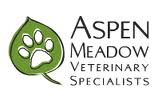Danielle Huval, DVM
Emergency Clinician Supervisor
 Having a new puppy is such a fun time for a family. Showing them off to friends and family, teaching them to walk on a leash, and socializing with other dogs are important steps to forming a great lifelong relationship. First visits to the veterinarian are packed full of information, which can be overwhelming. At an early age, puppies are vaccinated against many viruses, with Parvovirus, more commonly referred to as Parvo, being one of the most commonly talked about risks to your pup. Parvo can be devastating, but knowing the facts about the disease, the importance of vaccination, and prevention can help keep puppies healthy.
Having a new puppy is such a fun time for a family. Showing them off to friends and family, teaching them to walk on a leash, and socializing with other dogs are important steps to forming a great lifelong relationship. First visits to the veterinarian are packed full of information, which can be overwhelming. At an early age, puppies are vaccinated against many viruses, with Parvovirus, more commonly referred to as Parvo, being one of the most commonly talked about risks to your pup. Parvo can be devastating, but knowing the facts about the disease, the importance of vaccination, and prevention can help keep puppies healthy.
Parvo is found everywhere in the environment and it is spread through fecal oral contamination. Puppies have their nose to the ground, smelling and tasting everything. This makes them an easy target. Once in the puppies’ body, the virus starts replicating and within 3-7 days signs of illness occur. Bloody diarrhea and vomiting are the first symptoms associated with Parvovirus. Other causes of bloody diarrhea include parasites, stress, intestinal foreign body, other virus, or toxins. A Parvo test and bloodwork can be run to determine if Parvovirus is the cause.
The parvovirus attacks the bone marrow and gastrointestinal system. The virus attacks developing white blood cells in the bone marrow, stunting a puppies’ ability to fight infection. At the same time, the virus attacks intestinal cells causing profuse diarrhea, nausea, and vomiting. The damaged intestinal cells cannot maintain their barrier and bacteria is able to flow from the GI tract into the bloodstream, which causes sepsis. Sepsis, a bacterial infection in the bloodstream, is often the cause of death in these young puppies. Death can also occur from severe dehydration caused by vomiting and diarrhea.
Parvo is a devastating disease. While treatable, most puppies require several days of hospitalization, often at considerable cost. It is possible for some puppies to be treated without hospitalization, but they still require fluids, antibiotics, and other medications. Survival rates are around 80% for puppies treated in hospital. Without any treatment, Parvo is almost universally fatal.
The mainstay of treatment for Parvo is providing intravenous fluids to rehydrate and maintain hydration, controlling nausea with anti-emetics, and antibiotic therapy. Pain medication is also paramount as parvovirus causes severe intestinal pain. Puppies are extremely susceptible to dehydration from the diarrhea and vomiting, so keeping up with their fluid loss is crucial. Once bacteria enter their bloodstream, antibiotics are necessary. Puppies that are not responding to these treatments may require a plasma transfusion to bolster antibody and protein levels. Other types of fluids, called colloids, may be initiated if protein levels become too low. Other treatments may be recommended and often depend on the specific condition of the puppy.
Protecting a puppy from this virus starts with a solid vaccination series. Most puppies will need 3 vaccine boosters before they are protected. Even with the most comprehensive vaccine schedule, puppies are not 100% covered until after 16 weeks of age. Puppies have a naive immune system. Although it is fully functional, their immune system has been exposed to very little and once the maternal antibodies (virus fighting cells from their mother) diminish, the immune system is left with little to fight a virus, such as Parvo. Vaccinations are not able to protect a puppy fully due to maternal antibodies. The goal of vaccinating is to offer puppies more and more protection as their mother’s antibodies decrease. Current recommendations are to vaccinate every 3-4 weeks between the ages of 6 and 16 weeks. The last dose should be given between 14-16 weeks. (2011 AAHA Canine Vaccination Guidelines)
Parvovirus is found everywhere, but higher concentrations are found where other dogs and puppies frequent. To decrease exposure, avoiding parks and dog play areas for the first 16 weeks of life is best. Socializing a pup can still be accomplished through visits to friends with well-vaccinated dogs and puppy classes that require vaccination and deworming. Every puppy is at risk for parvovirus, but vaccinating and controlling their environmental exposure is the best we can do to avoid infection. A sick puppy needs veterinary care immediately, so don’t wait, as it can become a matter of life or death very quickly.
Dr. Danielle Huval is an emergency clinician at Aspen Meadow Veterinary Specialists. AMVS is a 24-hour veterinary facility providing specialty internal medicine, surgery, neurology, oncology, emergency and critical care, physical rehabilitation, and blood bank services for pets. They are located in Longmont at 104 S. Main St. For more information, go to www.AspenMeadowVet.com
